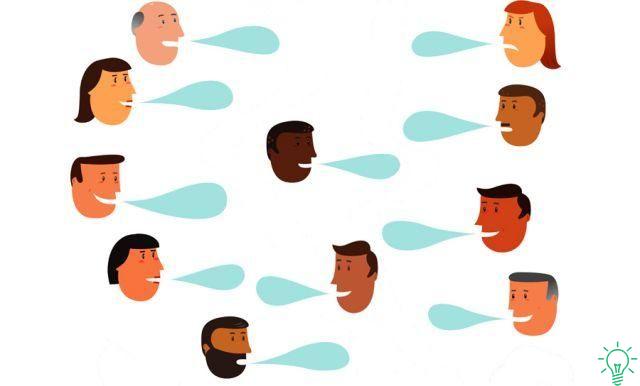 There are situations where we need to give explanations. There are other situations where it is not necessary. It's that simple! Knowing the difference will help you avoid unnecessary stress. It is not always necessary justify our decisions, behaviors, attitudes or ways of being. Those who really love us respect us. And those who are not open to hearing reasons will probably never change their opinion.A society that has a canon for everything creates the need to justify ourselves, as if being different were bad in itself. This social pressure makes us feel inadequate and pushes us to explain everything we do. Of course, there are situations where we have to explain our decisions and behaviors. It is important that the people around us understand why we have chosen one path over another. But when these people are not open to explanations, if they do not adopt an attitude open to dialogue but take on the role of judges, we have the right not to give explanations. Offering explanations in these cases would be like trying to empty the sea with a spoon, because our reasons would go unheeded.In fact, we must keep in mind that in many cases the need to explain comes from our insecurity. When we try to justify ourselves without being asked, what we are doing is perhaps just trying to convince ourselves that our decisions were the most correct.In other cases, we justify ourselves for fear of what others will say, because we are too attached to the judgment of others. In this case, we are afraid of being rejected or excluded and we feel the need to explain our decisions.
There are situations where we need to give explanations. There are other situations where it is not necessary. It's that simple! Knowing the difference will help you avoid unnecessary stress. It is not always necessary justify our decisions, behaviors, attitudes or ways of being. Those who really love us respect us. And those who are not open to hearing reasons will probably never change their opinion.A society that has a canon for everything creates the need to justify ourselves, as if being different were bad in itself. This social pressure makes us feel inadequate and pushes us to explain everything we do. Of course, there are situations where we have to explain our decisions and behaviors. It is important that the people around us understand why we have chosen one path over another. But when these people are not open to explanations, if they do not adopt an attitude open to dialogue but take on the role of judges, we have the right not to give explanations. Offering explanations in these cases would be like trying to empty the sea with a spoon, because our reasons would go unheeded.In fact, we must keep in mind that in many cases the need to explain comes from our insecurity. When we try to justify ourselves without being asked, what we are doing is perhaps just trying to convince ourselves that our decisions were the most correct.In other cases, we justify ourselves for fear of what others will say, because we are too attached to the judgment of others. In this case, we are afraid of being rejected or excluded and we feel the need to explain our decisions.3 situations in which explanations should not be given
1. When the person in front of you takes on the role of judge. In these cases, the person is not interested in understanding, but just wants to criticize you. Therefore, the rule applies that everything you say or do will be used against you. Don't try to justify yourself in these cases because you would do it in vain.2. When the person does not assume an attitude open to dialogue. If you notice that your interlocutor is closed in his arguments and does not show himself flexible to other ideas, it is probably because he does not want to listen to your arguments and you will not be able to change his preconceived idea.
3. When the problem doesn't really concern him. There are people who question your life choices and your way of being, without any rights. They are those people who ask you when you will have a baby, why you are not married yet or are not looking for a new job. These questions hide preconceived ideas that you will not be able to change, because in reality what these people want is to impose their vision of what life should be like on you.In these three cases, the attempt to justify ourselves tends to give rise to discussions that end up leaving. a bad taste in the mouth, so it's best to move on as soon as possible.
How to stop these people?
- Be aware of your rights. First, it's important to understand that you have every right not to explain if you don't want to. If your decisions and behaviors don't interfere with those of other people, you don't have to justify yourself.- Set limits. It is essential that uncomfortable questions do not lead to discussions. Therefore, it is necessary to learn to set limits in a diplomatic way. For example, if someone asks you when to get married, you can reply that you currently have other priorities in life. This way you will avoid hurting the person's sensitivity and, at the same time, having to give explanations that they probably would not understand.
- Say thank you. When they give you a tip that you didn't ask for and, in a sense, requires explanation from you, a good strategy is to simply say "thank you". You might say, "I appreciate your advice, but I feel good that way." In this way you will distance yourself from your interlocutor and close the topic.
- Change the subject. Some people have no understanding of diplomacy and continue to delve into our personal life. In these cases, a good strategy to successfully overcome the situation is to change the subject. The most effective choice is usually to ask a completely different question than a topic that interests your interlocutor, so you will make them understand that you no longer want to talk about this topic.
- 25


























